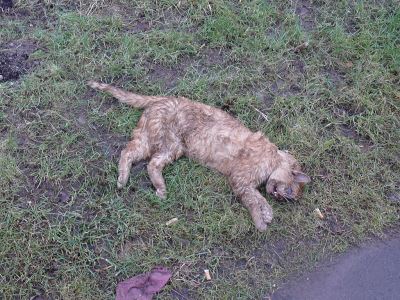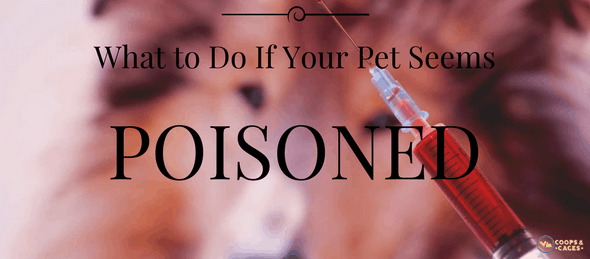Even if you take so much caution to ensure your pet stays in good shape, you can’t predict what may happen. Like humans, he might encounter happenings that may put his life to risk. One concrete example is poisoning. If you think your pet is poisoned, take action right away. Your every action counts.
Then again, do you know what you should do? Here are some useful tips for you. By taking note of these things, you should be able to save your pet’s life one day.
Know How Your Pet Could Be Exposed to Toxins



Though cases of poisoning are rare, they still happen. Why? That is because most pets are naturally curious. Just when you think you hid them in a safe place, they unknowingly come into contact with several toxins.
One of the most common ways a pet gets poisoned is by drinking or ingesting toxic objects. These objects could be mushrooms or damaged car parts lurking in the garage.
Toxins may get into your pet’s system through many ways. They can be absorbed through the skin or injected into the bloodstream through insect bites. Also, they can be inhaled in the form of fumes.
Identify Signs of Poisoning
The degree and severity of poisoning symptoms vary, depending largely on the type and amount of toxin that has entered the body. While some toxins are neglected by the body, others like chocolates and nuts take time to build up, which means the earliest symptoms of poisoning might go undetected. Yet, in some other cases, the body’s reaction could be quick and fatal.
Some of the most obvious signs of dog poisoning are as follows:
- Loss of Appetite – Your pet’s eating habits may change in the first stage of poisoning.
- Excessing Drooling – Nausea often causes drooling.
- Diarrhea – This may happen with or without bleeding.
- Rashes and Irritation – Rashes normally show up when toxins enter the body through the skin.
- Vomiting – Your pet may vomit with or without blood once poisoned because some toxins like rat poison may cause internal bleeding.
- Loss of Coordination – Once your pet shows signs of loss of coordination, that only means that toxins have affected his brain.
- Lethargy – This could be a common effect of poisoning, indicating that the toxin has affected the heart muscles.
- Difficulty in Breathing – Once the heart is affected, its function slows down. If that happens, fluid in the lungs may build up, which results in difficulty in breathing.
- Seizures – This is another sign that the toxins have affected the brain.
- Organ Failure – When the toxins take full effect, your pet’s internal organs may not function effectively.
- Unresponsiveness – At this point, your pet may stay conscious. However, he is not seeing or hearing anything around him.
- Loss of Consciousness – If your pet is no longer conscious, it means that toxins have already caused so much damage in his body.
- Comatose – This is a fairly serious sign that may soon lead to death.
- Death – Obviously, this is the saddest and final stage of poisoning, wherein your pet could die.
Learn What Measures to Take



If you notice any of the signs above, be sure to act quick. You could still save your pet’s life.
1. Identify what toxin your pet has come in contact with.
Knowing what toxin your pet has come in contact with is a very important step. Through this, your vet could easily formulate a treatment plan. It could be candies and chocolates or simple candy wrappers.
2. Contact your vet immediately.
After identifying the toxin, call your pet’s vet right away. Describe the symptoms and narrate what has exactly happened. If possible, bring your pet to the clinic. But when transporting, be careful so as not to add to your pet’s discomfort. It might be a good idea to give him a comfortable cat or dog bed.
3. Be obedient and follow directions.
More often than not, vets will advise pet owners to stop inducing vomiting as it only makes the situation worse. However, they might also tell you to feed your pet with activated charcoal because it works well at absorbing toxins. Most importantly, never ever give your pet a medication on your own. Again, listen to what the vet says.
Take Caution at All Times
As they say, “Prevention is better than cure.” That is why you should always side with caution. Begin by safely removing any poisonous foods and materials within your pet’s reach. And then, make sure his environment is safe and clean. Any object that could be a potential danger should be removed away from your pet’s sight.
The fate of your pet lies in your hands. If you disregard any of the symptoms and just give them access to anything toxic, don’t expect them to live longer. Be a responsible pet owner. Know what you should do and always take the extra mile to keep your beloved pets safe and happy. In the long run, you will be rewarded with a companion, a friend, and a family.
Image Sources: [1] [2] [3] [4] [5] [6] [7]



